The Ultimate Guide to Interview Scheduling Tools

Introduction
Mastering the art of interview scheduling can be a game-changer in the hiring process. It’s not just about aligning calendars; it’s about creating a symphony of timely interactions that lead to meaningful evaluations of potential hires. With the surge in applications and the need for clear and efficient communication, a well-oiled interview scheduling mechanism is key to managing high volumes effectively.
In this article, we will explore the importance of efficient interview scheduling, steps for effective scheduling, benefits of using interview scheduling tools, key features of these tools, and best practices for their use. By the end, you’ll have a comprehensive understanding of how interview scheduling can enhance your recruitment process and yield great hires. So, let’s dive in!
Importance of Efficient Interview Scheduling
Becoming proficient in the art of arranging meetings can be a game-changer in the hiring process. It’s not just about aligning calendars; it’s about creating a symphony of timely interactions that lead to meaningful evaluations of potential hires. With the surge in applications—startups like PostHog sifting through 9,000 applications in a year—it’s evident that a well-oiled interview scheduling mechanism is key to managing such volumes effectively.
At the heart of it all is communication efficiency. The individual and company need to find their perfect match, and clear, effective communication is the bridge that connects them. To ensure you’re presenting your best self, it’s critical to understand that applicant tracking systems are designed for speed of processing, not to showcase applicants. An awareness of the system’s mechanics can empower candidates to optimize their applications for better visibility.
Scientists and seasoned questioners alike highlight the diverse nature of discussions. They’re not just a selection tool but also play a role in recruitment and socialization. This means that the selection process must be finely tuned to address these varied objectives. For instance, discovering that individuals who have meetings in the early hours are more prone to receiving employment proposals might encourage a tactical reconsideration of appointment timetables to take advantage of this realization.
Moreover, automated video interviews are emerging as a significant trend. They offer a range of advantages, from AI-powered analysis of responses to providing an efficient method of pre-screening individuals. Nevertheless, it is important to bear in mind that with such technology comes a fresh array of challenges, such as guaranteeing individuals are ready for this format and recruiters are trained to interpret AI-generated data correctly.
In conclusion, efficient arrangement of meetings is not just about convenience. It’s a strategic element that, when executed with accuracy, can greatly improve the recruitment procedure, resulting in advantages for both the company and the individual. It’s about finding that sweet spot where timing meets talent, and great hires are made.
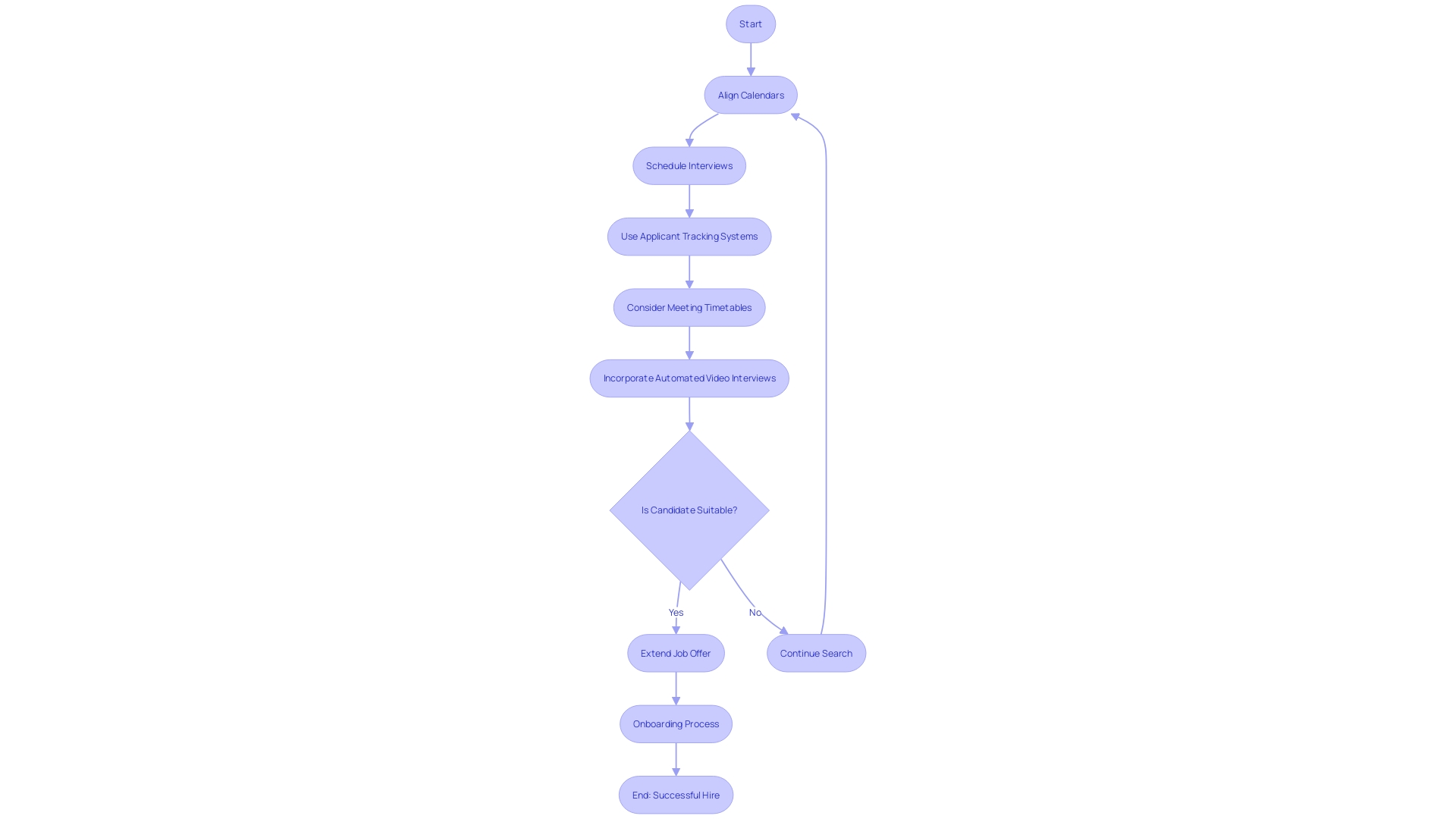
Steps for Effective Interview Scheduling
Developing a scheduling process that’s efficient and candidate-friendly is crucial in today’s competitive job market. The emphasis should be on establishing a centralized system that enables seamless coordination with individuals applying and interviewers alike, especially when managing different time zones for remote interviews.
To start, a well-crafted job description is your initial interaction with potential applicants. It sets the stage for an individual’s journey with your organization and serves as a beacon for inclusivity and diversity. Artificial intelligence and machine learning can assist in creating job descriptions that are not only comprehensive but also appealing to a broader talent pool.
Going ahead, the interview should be initiated with a warm welcome to create a relaxed environment, followed by an introduction of the team and a clarification of the interview’s objectives. Remember, a calm individual is more likely to display their true abilities. Questions should revolve around past experiences rather than hypothetical situations. For instance, explore projects where the individual had to acquire a new skill, investigating the complexities of their learning and utilization of that skill.
Moreover, timing plays a critical role in the recruitment process. Recent data analysis has revealed that candidates interviewed in the morning are more likely to receive job offers. This understanding can be crucial in planning meetings to optimize the opportunities of acquiring exceptional individuals while also reducing decision exhaustion for recruitment teams.
Moreover, simulating the recruitment procedure from both the job seeker and recruiter perspectives can provide invaluable insights. This allows you to pinpoint areas for improvement and ensure each step is executed correctly, with clear accountability and measurable metrics.
Lastly, a well-rounded approach to capability assessment is vital. Instead of focusing on the individual, explore their past projects and learning experiences to gauge their skills and their application in real-world scenarios. This method is proven to be more reliable than speculative or hypothetical questioning.
By integrating these strategies, organizations can optimize their candidate meeting arrangement, making it more efficient and candidate-focused.
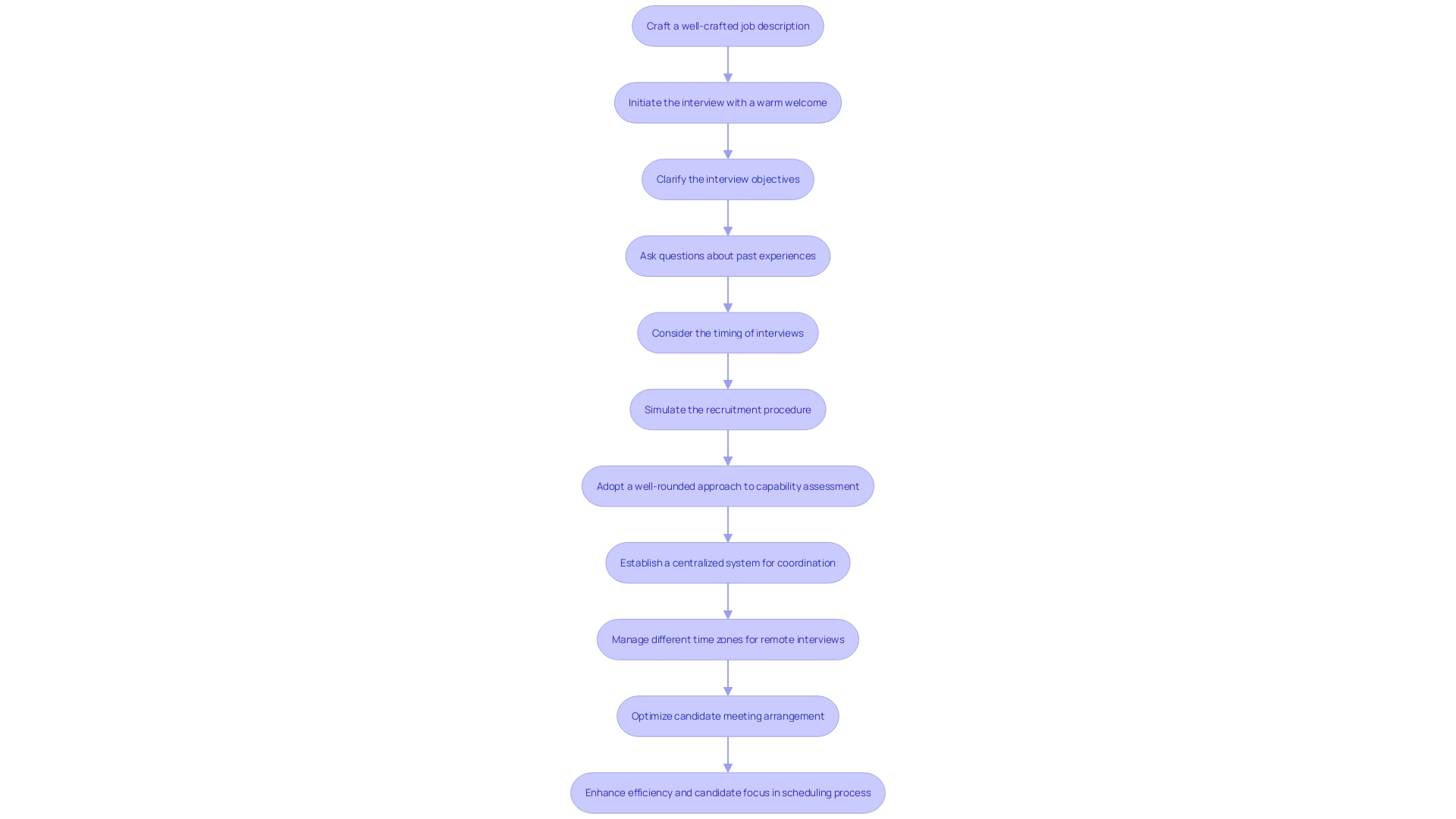
Benefits of Using Interview Scheduling Tools
Utilizing the potential of tools for arranging meetings can revolutionize your hiring process into a model of efficiency and effectiveness. These tools are not just about shaving off minutes from your scheduling tasks; they provide a comprehensive approach to enhancing the applicant journey and streamlining operational workflows.
By integrating these tools, organizations can significantly cut down the hours dedicated to coordinating interviews, allowing teams to redirect their focus to more strategic activities. In addition, individuals enjoy the seamless experience, devoid of the back-and-forth emails that frequently mar the initial impression of a possible employer.
The impact extends to data handling as well. With improved precision and convenient access to applicant information, the entire hiring team can collaborate seamlessly, making informed decisions swiftly. Reporting becomes a breeze, too, offering valuable insights that can refine the hiring strategy further.
Such tools are not mere conveniences; they are strategic assets. They embody the tenacity and creativity that drive today’s successful hiring campaigns. The ability to learn from each interaction and adapt accordingly is a trademark of these systems, much like the marketing prowess of companies like Mint Mobile, who prioritize ingenuity over hefty production budgets.
Take into account the scenario of automated video assessments, which utilize AI to evaluate candidates on various parameters. This innovation not only speeds up the selection process but also offers a new dimension of data to consider, providing a comprehensive view of the applicant that goes beyond the resume.
Furthermore, informal proof from industry professionals implies that strategically-timed discussions can result in an increased success rate in job offers. By utilizing the data from time management tools, organizations can enhance the timing of meetings to increase their likelihood of acquiring top-notch personnel.
Essentially, the implementation of tools for arranging meetings is a move towards a more contemporary, effective, and candidate-friendly hiring procedure. It’s an investment in your organization’s future, ensuring that you attract and retain the best talent in a competitive landscape.
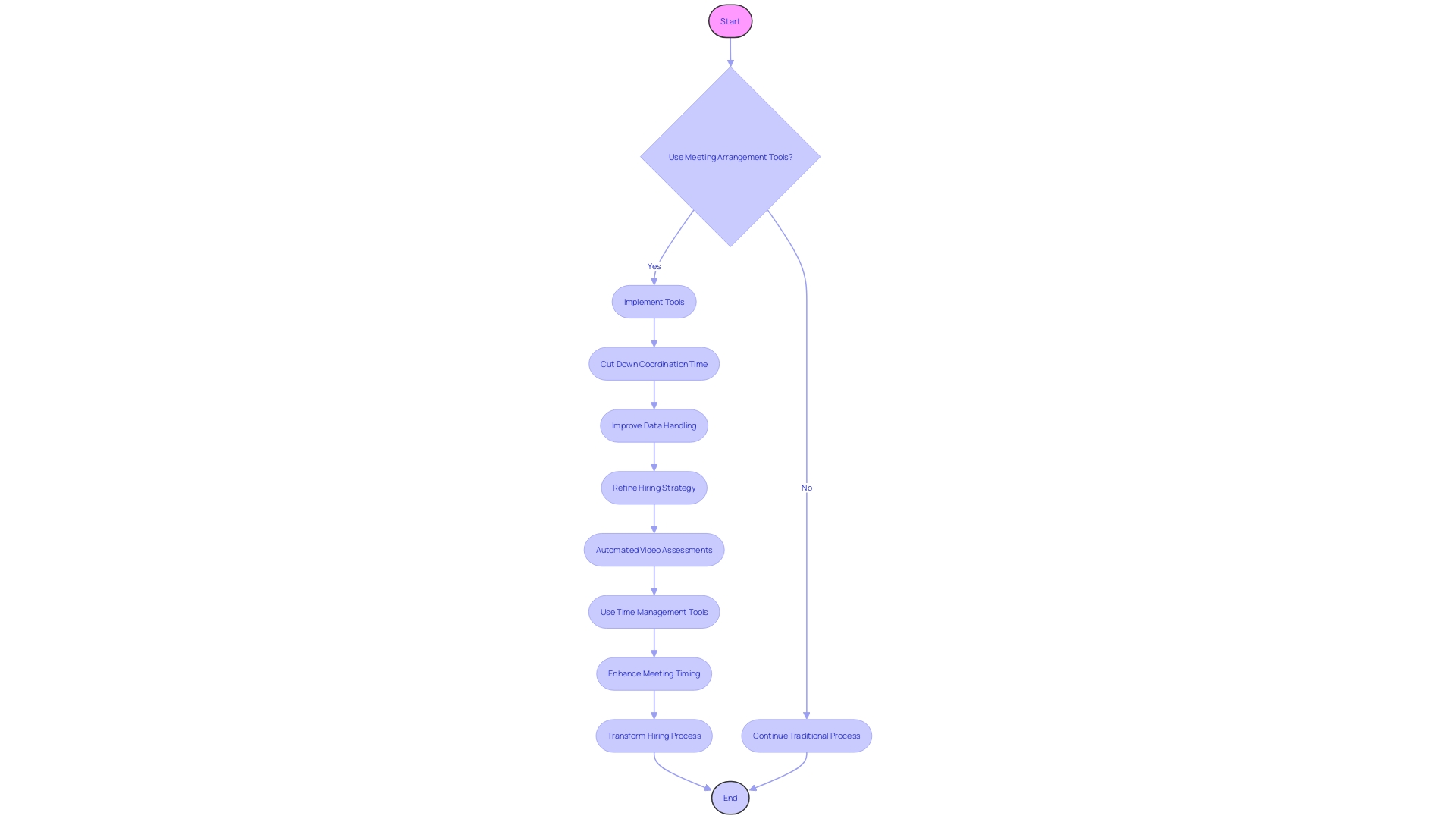
Key Features of Interview Scheduling Tools
Utilizing high-quality scheduling tools can be a game-changer in streamlining the recruitment process. These tools are more than just a calendar—they’re a comprehensive solution that brings automation, integration, and customization to your fingertips. By syncing seamlessly with your calendar, they ensure that double-bookings are a thing of the past, and every stakeholder is on the same page.
The beauty of these tools lies in their ability to automate tedious coordination tasks. Picture arranging conversations with just a few clicks, where the software manages the monotonous exchange, discovering spots that suit everyone. Plus, with adaptable configurations and templates, your organization’s brand shines through every communication, ensuring that individuals get a taste of your culture right from the beginning.
But it doesn’t stop there. Automated confirmations and reminders mean that everyone is kept in the loop, reducing no-shows and last-minute scrambles. These features are not just a convenience; they’re a strategic asset that can save significant amounts of time and money. Actually, businesses are recognizing the potential of AI and machine learning to optimize their recruitment procedures, from creating inclusive job descriptions to efficiently organizing interviews.
And let’s not forget the human touch. While AI is revolutionizing the way we handle administrative tasks, it’s the personalized experience that leaves a lasting impression on candidates. So, while you leverage technology for efficiency, ensure that your recruitment procedure remains personable and engagingâqualities that echo throughout successful organizations.
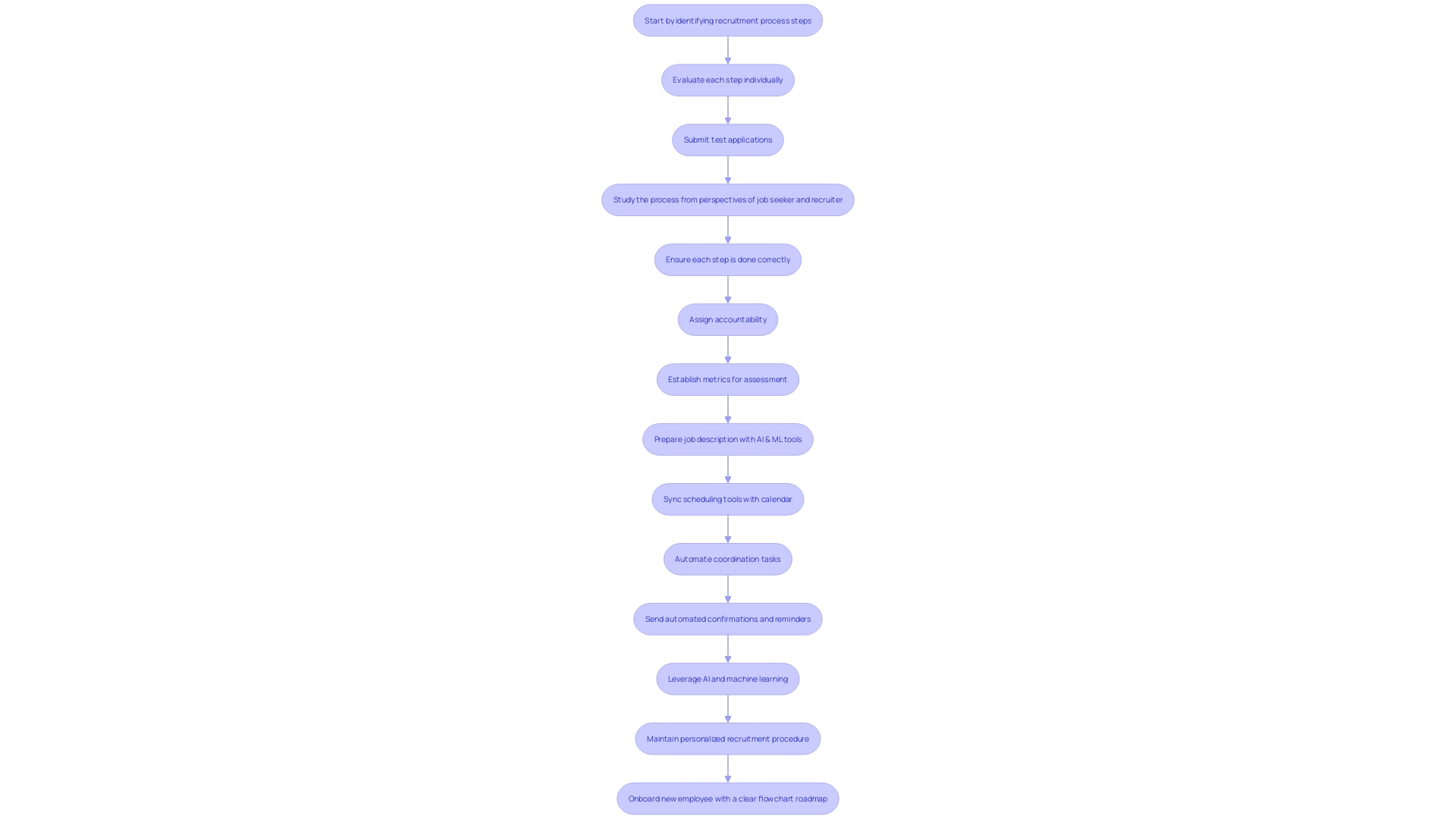
Best Practices for Using Interview Scheduling Tools
Interview scheduling tools are revolutionizing the hiring procedure, but to harness their full potential, it’s crucial to adopt a strategic approach. Delve into the process by submitting test applications, putting yourself in the shoes of both the job seeker and recruiter. This helps you to pinpoint and fine-tune each step, ensuring a seamless experience. Embrace AI to craft job descriptions that don’t just attract talent, but also resonate with a diverse audience. According to research, getting the timing right for meetings can make a big difference. Data reveals that candidates interviewed in the morning are more likely to land job offers. Utilize such insights to strategically plan meetings, thereby reducing decision fatigue. Furthermore, contemplate including actual or simulated projects into the discussion. This gives candidates a taste of the actual work and provides a more accurate assessment of their skills. Remember, the key to an effective interview is not just asking questions but fostering a conversation that uncovers candid insights and unexpected revelations.
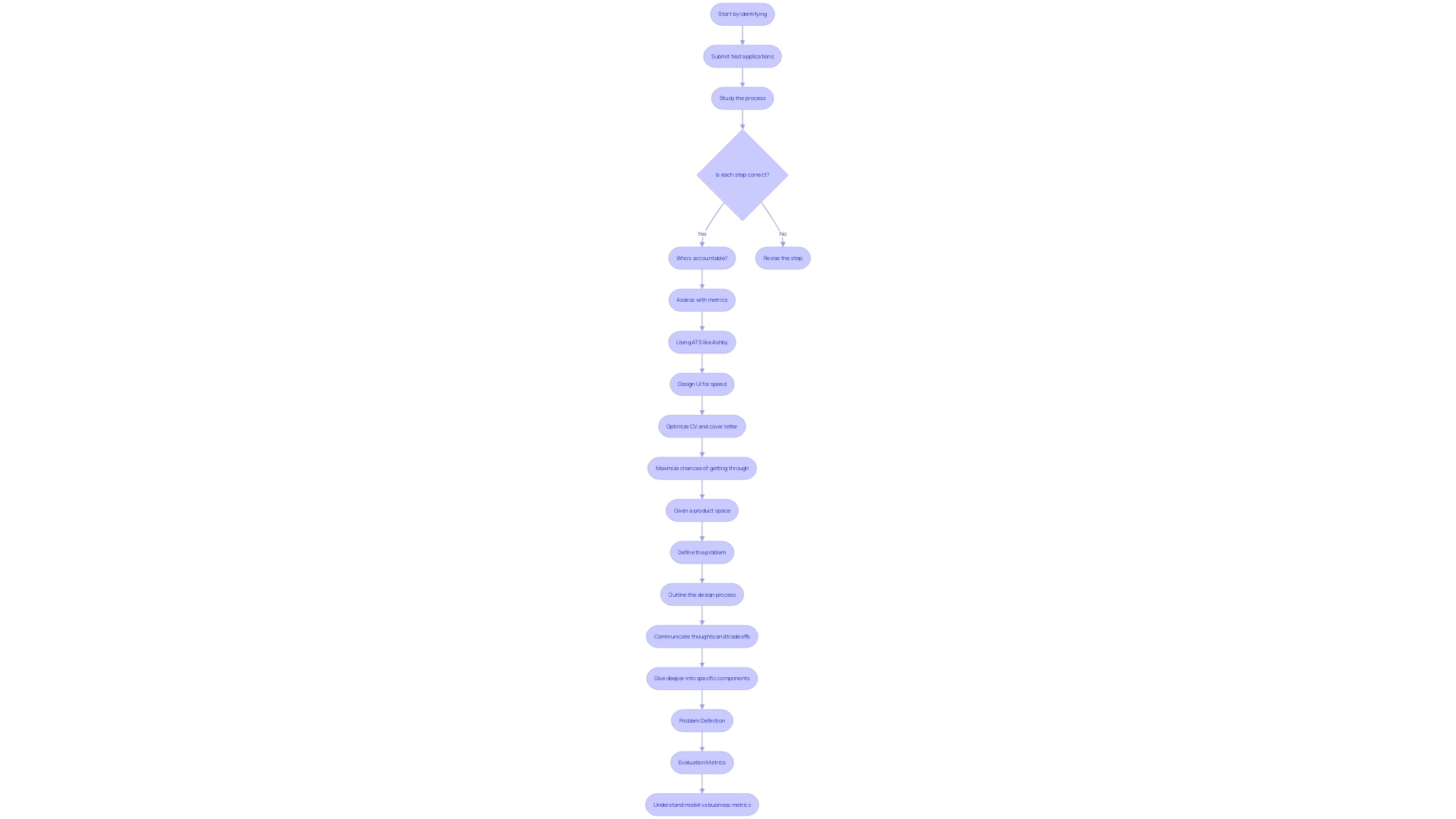
Conclusion
Efficient interview scheduling is a game-changer in the hiring process. It goes beyond aligning calendars; it creates timely interactions that lead to meaningful evaluations of potential hires. By mastering interview scheduling, organizations can effectively manage high volumes and find the perfect match between candidates and companies.
Clear and effective communication is crucial. Understanding that applicant tracking systems are designed for speed, candidates can optimize their applications for better visibility. The interview process serves multiple objectives, and strategic rethinking of schedules can capitalize on insights, like the higher likelihood of job offers for morning interviews.
Interview scheduling tools offer numerous benefits. They save time, streamline workflows, and provide a smooth and candidate-centric experience. These tools integrate with calendars, automate coordination tasks, and showcase the organization’s brand.
While technology brings efficiency, maintaining a personalized and engaging recruitment process is crucial.
Key features of interview scheduling tools include automation, integration, and customization. They eliminate double-bookings, automate confirmations and reminders, and save time and money. Adopting a strategic approach is vital.
This includes submitting test applications, embracing AI for inclusive job descriptions, leveraging insights to schedule interviews strategically, and incorporating real or simulated projects into the process.
In conclusion, mastering interview scheduling enhances the recruitment process. By following effective scheduling steps, harnessing the benefits of scheduling tools, and implementing best practices, organizations can create timely interactions that lead to successful hires. It’s about finding the sweet spot where timing meets talent and making the right hires for the future.
Streamline your interview process with our powerful scheduling tools and find the perfect match between candidates and companies.
